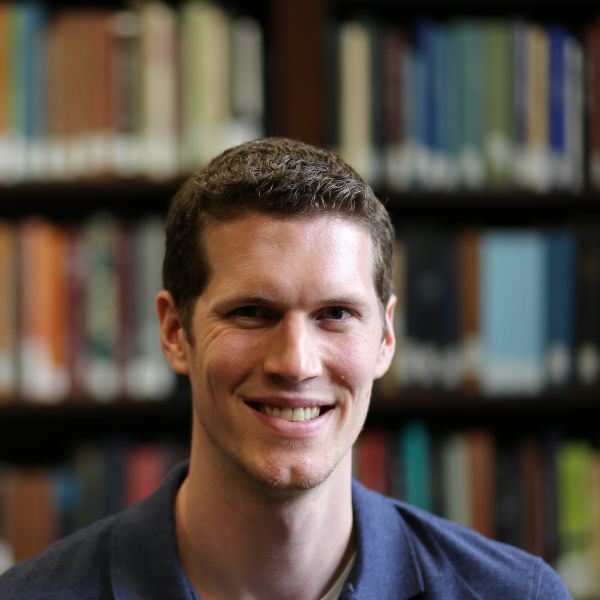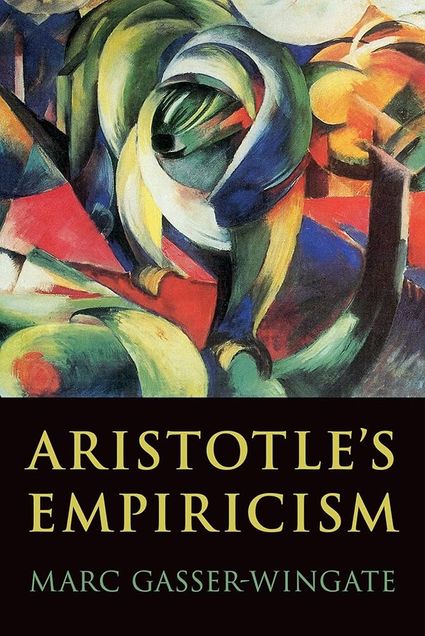BU Humanists at Work: Marc Gasser-Wingate, Associate Professor of Philosophy
You don’t need extensive knowledge of philosophy to recognize the name Aristotle, as he remains a ubiquitous figure in current and past societies. Even so, scholars continue to study his work in an effort to deepen their understanding. Marc Gasser-Wingate, Associate Professor of Philosophy at BU, is one of these scholars, contributing to the ongoing conversations through his own research and collaborations aimed at making classical philosophy more accessible to the general public.
Gasser-Wingate graduated with his BA from the University of Chicago and joined Boston University in 2015 after completing his PhD at Harvard University. Through his undergraduate and graduate studies, Gasser-Wingate became interested in ancient Greek philosop hy and the philosophy of mathematics.
hy and the philosophy of mathematics.
When asked about what drew him to classical philosophy, Gasser-Wingate described how the depth and clarity of many ancient Greek philosophers, including Aristotle, helped him gain an understanding of how to approach many shared fundamental philosophical questions: What is the world made of? How should we live?
“Part of the appeal of studying someone like Aristotle…is that they often attempt to answer these questions in a coherent and comprehensive way,” he explains. Gasser-Wingate describes Aristotle’s views as “accessible and intuitive, even if they often rest on a rather different set of assumptions than we might make today.” The accessibility of Aristotle stands as evidence against the common notion that philosophical ideas are enigmatic and far removed from everyday life. Professor Gasser-Wingate argues that while Aristotle’s ideas are very different from modern understandings of the world in some ways, they are still applicable to life today and can teach us about modern society.
Ancient Greek philosophers like Aristotle began to examine the questions Gasser-Wingate highlights millennia ago. Following the deaths of these philosophers, academics in subsequent generations have expounded on these ideas as they were originally conceived in Ancient Greek society . As a philosophy professor, Gasser-Wingate recognizes that conveying the significance of Aristotle’s thought without assimilating it to contemporary positions presents a challenge.
Both in and outside of the classroom, Gasser-Wingate feels strongly about “preserving and articulating the thoughts of [philosophical] figures, in a way that makes it possible for them to still be a part of our ongoing conversations on these questions”. One way he’s keeping this discourse alive is by making the approaches and ways of thinking utilized by these ancient philosophers more accessible. As a professor and scholar working with ancient texts, Gasser-Wingate is very familiar with online tools, and he believes these tools might be a way to bring more people to these philosophers and their ideas.
Now, Gasser-Wingate and his colleagues are working to create a space that makes these philosophical works more accessible. They strive to do this in a way that honors the original content without oversimplifying it. The Open Plato Project provides open access to digitized, translated copies of Plato’s texts with commentary and notes on the translation, philosophical views, and cultural context. Gasser-Wingate hopes this project will serve as “an invitation to scholarship,” as it’s difficult to find digital translations of Plato that are displayed in an inviting way.

“All ancient Greek scholars rely on a pretty comprehensive corpus of digitized texts…this is an invaluable resource for scholars,” Gasser-Wingate notes. However, current databases are clunky and not very user friendly, making them useful for research, but not necessarily very accessible. In collaboration with other philosophy professors from institutions around the world, Gasser-Wingate is helping to develop the Open Plato Project. The project seeks to make ancient philosophy more accessible to a broader audience.
As expressed in their mission statement, the Open Plato Project “aims to create a new kind of digital edition of ancient Greek philosophical texts, intended for both expert and non-expert audiences and produced in collaboration with scholars from multiple disciplines.” Although still in its infant stage, the Project offers direct translation and commentary on Greek texts such as Alcibiades.
While Gasser-Wingate recognizes the value of reading the texts in their original languages, the assumption that people coming to the texts have prior knowledge of these languages and cultural ideas “greatly restricts the reach of scholarship.” Counter to the intent of Plato’s writings, which were intended to be entertaining and engaging pieces of literature, ancient philosophy can prove intimidating to readers. “They’re supposed to be pieces of writing that you can pick up without prior training,” says Gasser-Wingate. For this reason, the Project website offers options to display the original Greek along with the English translation, while also providing expert commentary to aid in comprehension.
By making ancient philosophical texts more accessible, scholars like Gasser-Wingate ensure that the wisdom of philosophers like Plato and Aristotle remains alive in modern discourse. Through efforts such as the Open Plato Project, more individuals will be able to engage with these foundational texts, broadening the reach of philosophy beyond academic circles. Gasser-Wingate is one of many scholars taking advantage of digital tools to explore humanistic topics and promote the humanities in a world increasingly interested in computational methods.